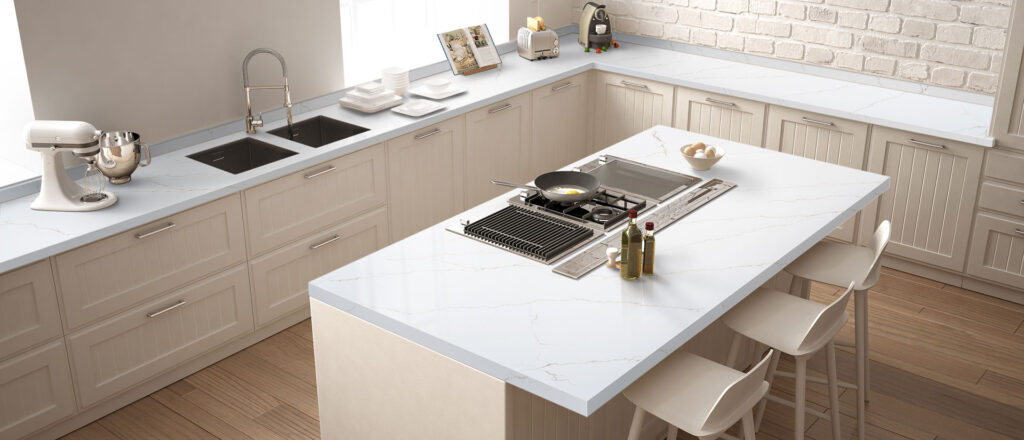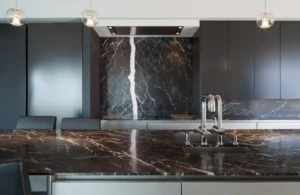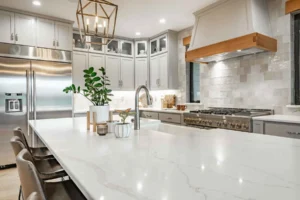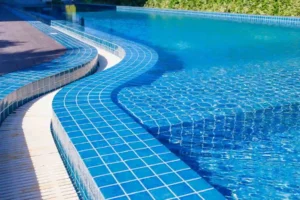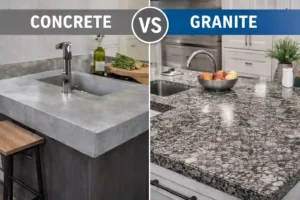Limestone Countertops Installation and Repair Service in Lowell
When it comes to enhancing the beauty and functionality of your kitchen, limestone countertops are an exceptional choice. We specialize in providing high-quality limestone countertops installation and repair services in Lowell. Whether you’re looking for an elegant kitchen upgrade or need expert repair for your existing limestone surfaces, our team has you covered.
In this article, we’ll explore the benefits of limestone countertops, our installation process, common issues that can arise, and how we repair and maintain limestone surfaces to ensure they last for years.
Table of Contents
Toggle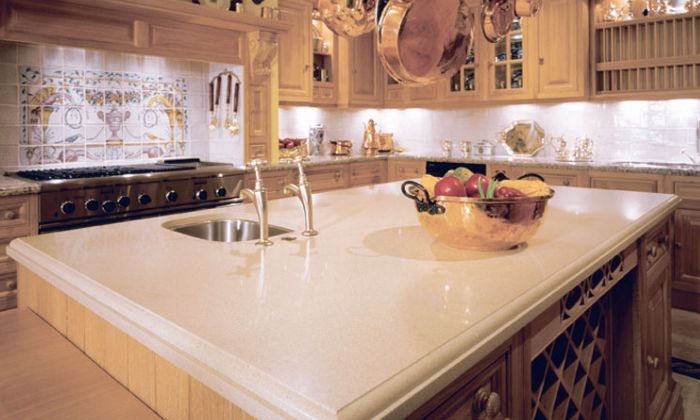
Benefits of Limestone Countertops
Aesthetic Appeal and Versatility
One of the primary reasons homeowners choose limestone countertops is their natural beauty. Limestone’s soft, earthy tones provide a timeless, elegant look that complements various styles, from rustic to modern.
This natural stone is also incredibly versatile, with limestone slabs available in different finishes, such as a polished finish or honed texture, allowing you to customize the appearance to suit your space.
Durability and Longevity
Limestone is a sturdy countertop material known for its durability. While not as hard as stones like granite, it’s strong enough to withstand daily use in kitchens and bathrooms. When properly sealed and maintained, limestone countertops can last for decades, offering both longevity and style.
Natural Cooling Properties
An added benefit of limestone is its natural cooling ability. This feature makes it ideal for kitchens, especially for those who frequently bake or work with pastry. The stone’s cool surface provides the perfect workspace without the need for additional cooling equipment.
Eco-Friendly
Limestone is a naturally occurring material, making it an eco-friendly choice for homeowners. Its extraction and processing have a relatively low environmental impact compared to synthetic materials. Plus, since it’s a natural stone, limestone is fully recyclable at the end of its lifespan, making it a sustainable option.
Our Limestone Countertop Installation Process
At SF Marble & Granite, we follow a meticulous installation process to ensure your limestone countertop is perfect from start to finish.
Measurement and Planning
The first step in our countertop installation process is precise measurement. Our team will visit your home to take accurate measurements of your kitchen or bathroom space. We’ll discuss your design preferences, including the type of limestone slab and limestone tiles that best suit your project.
Surface Preparation
Once measurements are complete, we prepare the surface where the limestone countertop will be installed. This step includes leveling the base cabinets and ensuring the area is free from debris to guarantee a smooth and stable installation.
Cutting and Fitting Limestone Slabs
We use specialized tools to cut the limestone slabs to the required size and shape. Our skilled professionals pay close attention to detail to ensure precise cuts and smooth edges for a seamless fit. Cutting boards are used during this step to ensure accuracy.
Securing and Sealing the Countertop
After the slabs are cut and fitted, we secure the limestone countertop in place. We use high-quality adhesives and professional techniques to ensure stability. Finally, we seal limestone countertops to protect them from moisture, stains, and other potential damage. Sealing is crucial to maintaining the stone’s appearance and durability.
Final Inspection
Before completing the installation, we conduct a detailed final inspection to ensure the countertop meets the highest standards. Our team carefully checks for any flaws, ensuring the surface is smooth, properly aligned, and free from imperfections.
We then walk you through the completed installation, pointing out key details and answering any questions you may have. This step ensures that the work meets your expectations and gives you the chance to confirm everything is to your satisfaction.
Common Issues with Limestone Countertops
Despite their beauty and durability, limestone countertops can experience some common issues over time.
Chips and Cracks
Limestone, though durable, is more susceptible to chips and cracks compared to tougher stones like granite. Heavy impacts, such as dropping objects, or using sharp tools improperly on its surface can lead to damage.
This makes limestone less ideal for areas with high usage or where heavy items may be handled frequently. Careful handling and proper maintenance are essential to prevent such damage and maintain its appearance.
Stains and Etching
Limestone, being porous, readily absorbs liquids, making it vulnerable to stains from items like citrus juice, wine, and oil. This absorbency can lead to discoloration over time.
Additionally, when acidic substances touch the stone, they can cause etching, which creates dull spots on the surface. Both staining and etching compromise the appearance of limestone, necessitating careful maintenance and protection to preserve its beauty and integrity.
Loose Seams
Loose seams in limestone countertops can develop over time due to improper installation or excessive wear and tear. When slabs are not installed correctly, gaps may appear between them, leading to structural issues.
These loose seams can allow moisture to penetrate, potentially causing further damage. Regular maintenance and timely repairs are essential to ensure the longevity and integrity of the countertop, preventing further deterioration and preserving its aesthetic appeal.
Limestone Countertop Repair Process
At SF Marble & Granite, we offer professional Limestone Countertops repair services to address any issues you may encounter.
Assessment of Damage
The repair process starts with a comprehensive evaluation of the damage to your surface. This includes identifying any small chips, cracks, or stains. By carefully assessing the extent of the damage, we can decide on the most effective repair method to restore the surface. This initial step is crucial in ensuring that we address all issues properly, providing you with the best possible solution for your specific repair needs.
Methods of Repair
We use various repair techniques depending on the issue. For chips and cracks, we may use specialized fillers to restore the surface. Stains and etching can often be corrected by polishing the affected area and applying a fresh coat of sealant. In some cases, re-sealing the entire countertop may be necessary to restore its appearance and functionality.
Restoration of Appearance and Functionality
Our primary objective is to revitalize your limestone countertop, enhancing its natural beauty while maintaining its functionality for everyday use. We begin by repairing any damages, followed by a thorough cleaning and polishing process.
After completing these steps, we perform a final inspection to guarantee that your countertop not only looks stunning but also feels as good as new, ensuring it meets all your needs for daily activities.
Preventive Maintenance Tips
To extend the life of your limestone countertops, regular maintenance is key.
Regular Cleaning and Sealing
To maintain limestone countertops, clean them regularly using a soft cloth and a pH-neutral cleaner, avoiding harsh chemicals that can harm the stone. It’s essential to schedule sealing every 1-2 years to safeguard the surface against stains and etching.
This regular maintenance ensures the longevity and appearance of the countertops, keeping them looking their best while preventing damage from spills and acidic substances.
Avoiding Acidic Substances
To protect limestone countertops, it’s essential to avoid acidic substances like citrus juice and vinegar, as they can cause damage. Always use coasters for beverages, cutting boards for food preparation, and trivets for hot pots or pans.
These precautions help prevent spills, scratches, and etching on the surface, ensuring your limestone remains beautiful and in good condition for years to come. Regular care and maintenance will further enhance its durability.
Promptly Addressing Minor Issues
Promptly addressing minor issues like chips, cracks, or stains is crucial for maintaining the appearance and integrity of your surfaces. If you notice these problems, tackle them immediately to prevent further damage.
Early intervention not only helps maintain the aesthetic quality but also saves you from more extensive and costly repairs later on. Regular maintenance and quick fixes can extend the lifespan of your surfaces and keep them looking their best.
Why Choose Our Services?
We offer exceptional limestone countertop installation and repair services, making us the ideal choice for your project. Our team of experienced and skilled professionals ensures that every job meets the highest standards, using only premium materials and advanced tools to guarantee durability and aesthetic appeal.
We are committed to a customer-centric approach, working closely with you to understand your vision and providing customized solutions, whether you prefer black limestone countertops or a bespoke design.
Our transparent pricing ensures no hidden fees, with clear quotes for all services, and we pride ourselves on timely service delivery without compromising quality. Ready to transform your kitchen with stunning limestone countertops? Contact Us today for a free consultation or quote.
FAQs
How long does the installation process take?
On average, limestone countertop installation takes 3-5 days, depending on the size and complexity of the project.
Can limestone countertops be repaired if damaged?
Yes, most damage can be repaired through techniques like filling, polishing, and re-sealing.
What maintenance is required for limestone countertops?
Regular cleaning with a soft cloth and periodic sealing are recommended to keep limestone countertops in top condition.
Are there any warranties offered for installation and repairs?
Yes, we offer warranties for our installation and repair services. Contact us for more details.

